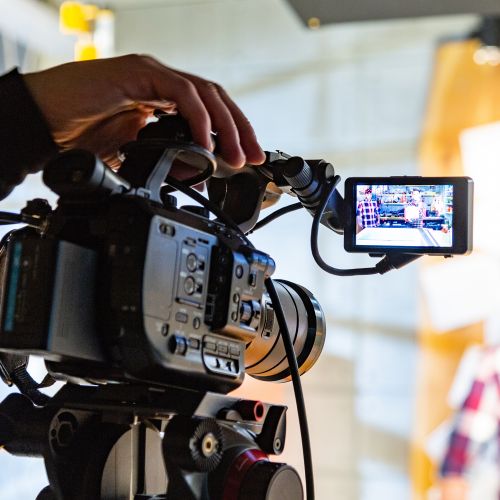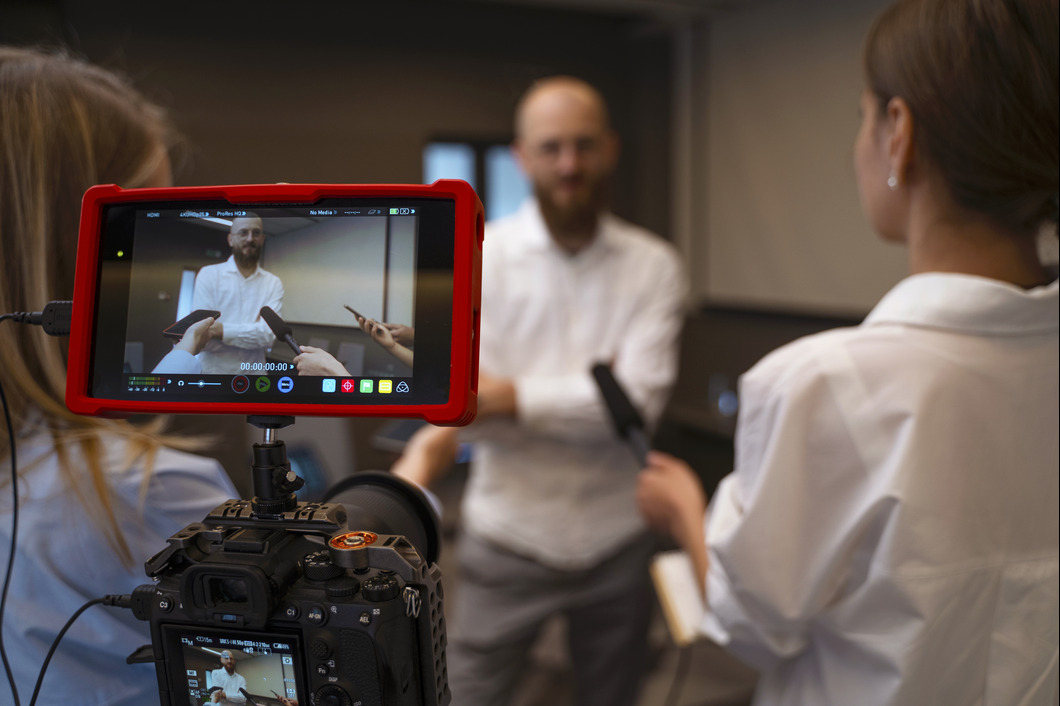Exploring the Devices of Legal Videography: Introduction Its Procedure in Shielding Genuine Aesthetic Statement for Judicial Procedures
In the realm of judicial procedures, the duty of legal videography stands as a foundation in protecting and providing visual evidence. As technology continues to advancement, the mechanisms behind legal videography have come to be significantly detailed, providing a critical layer of credibility to statements captured on video clip. By diving into the functional details of legal videography, one can discover the meticulous procedures that guard the stability of visual proof provided in courtrooms - Legal Videography. This expedition not only drops light on the historical advancement of legal videography yet additionally hints at the future trends that might even more change just how visual testaments are maintained in the world of justice.
Historic Development of Lawful Videography
Taking a look at the historical progression of lawful videography reveals a considerable makeover in the capturing and presentation of aesthetic evidence within the legal landscape. In the past, lawful process heavily relied upon written pictures and records to document events and offer evidence. Nonetheless, with the arrival of video technology, the lawful market observed a paradigm shift in exactly how aesthetic testimony was captured and presented.
The development of legal videography can be traced back to the late 20th century when improvements in video clip recording tools made it more available for use in court rooms. This technical improvement not only improved the precision and reliability of aesthetic proof yet likewise reinvented the method situations were provided to judges and juries (Legal Videography). Lawyers began to identify the influential power of video clip recordings in communicating emotions, subtleties, and non-verbal hints that composed pictures or records alone might not catch efficiently

Innovation Innovations in Video Documentation
What crucial technological innovations have transformed video documentation in the lawful area? The legal area has seen significant innovations in video documents technology that have boosted the credibility and reliability of visual proof in judicial procedures.
In addition, developments in video clip encryption and watermarking technologies have strengthened the safety and tamper-proof nature of video clip evidence, guarding it against unauthorized modifications or tampering. Additionally, the arrival of cloud storage space services and remote accessibility abilities has structured the storage, retrieval, and sharing of video evidence, assisting in seamless partnership amongst lawyers and ensuring effective accessibility to critical aesthetic statements when required. These technological developments in video paperwork have undoubtedly revolutionized the legal field, improving the accuracy, trustworthiness, and admissibility of visual proof in judicial proceedings.
Role of Legal Videographers in Court Room Settings
The development of video clip documentation technology in the legal area has required a vital function for lawful videographers in court room settings, making certain the integrity and dependability of aesthetic testaments presented throughout judicial procedures. Lawful videographers play an essential function in recording and maintaining accurate aesthetic proof that can be pivotal in court situations. Their obligation extends to establishing equipment, videotaping proceedings, and producing top quality video clips that precisely reflect the click to investigate events in the courtroom.
Additionally, legal videographers frequently work closely with lawful groups to make certain that the video proof aligns with the case's demands and can be properly provided in court to sustain the lawful debates being made. In general, the function of legal videographers in court room setups is important in upholding the principles of justice and making sure the openness of legal proceedings. Legal Videography.

Ensuring Admissibility and Integrity of Video Clip Proof
To maintain the reliability of aesthetic proof offered in lawful proceedings, making certain the admissibility and integrity of video proof is an essential obligation for lawful videographers. Admissibility refers to the approval of evidence by the court, and for video clip proof to be admissible, it should satisfy specific criteria. Legal videographers play a critical function in guaranteeing that the video clips they catch abide by the policies of evidence, such as reliability, authenticity, and importance.
Honesty of video navigate to this site proof includes preserving the creativity and precision of the footage from the moment it is taped up until it is provided in court. This includes securely saving the video clip files, documenting the chain of custody, and preventing any kind of tampering or alterations. Legal videographers must comply with rigorous protocols to ensure the integrity of the video clip evidence and avoid any type of challenges to its credibility.
Future Trends in Legal Videography
Provided the boosting dependence on modern technology in lawful process, lawful videographers are poised to welcome innovative innovations forming the future of visual statement capture and presentation. Among the prominent trends imminent is the integration of virtual reality (VR) and increased reality (AR) modern technologies into lawful videography. These innovations have the potential to transform how visual proof exists in court rooms, allowing discretionary to immerse themselves in the scene of the criminal offense or event.
Furthermore, the usage of expert system (AI) formulas for video analysis is expected to enhance the process of reviewing and examining huge amounts of video clip footage. AI can help in determining crucial minutes, abnormalities, and patterns within videos, enhancing the effectiveness of lawful investigations.

Verdict
In verdict, legal videography has actually played a vital role in giving genuine visual evidence for judicial process. With technical innovations and the experience of legal videographers, the honesty and admissibility of video proof are ensured in court setups. As legal videography proceeds to evolve, it will be important to support criteria that maintain the accuracy and dependability of aesthetic testament for the future of legal procedures.
Checking out the historical progression of lawful videography discloses a significant improvement in the recording and presentation of aesthetic evidence within the legal landscape.The development of video clip documentation modern technology in the lawful area has necessitated a critical role for lawful videographers in courtroom settings, making sure the honesty and integrity of visual testaments presented during judicial proceedings. Furthermore, legal videographers typically work very closely with lawful teams to ensure that site web the video clip proof straightens with the instance's needs and can be properly presented in court to sustain the legal disagreements being made.To preserve the credibility of aesthetic evidence presented in lawful process, ensuring the admissibility and honesty of video clip proof is a crucial responsibility for lawful videographers. As lawful videography proceeds to advance, it will be vital to maintain requirements that maintain the accuracy and dependability of visual testimony for the future of legal process.